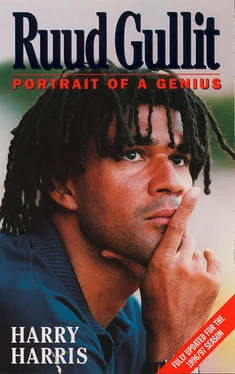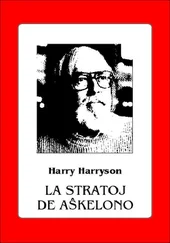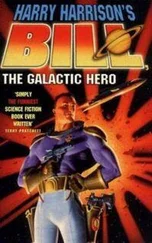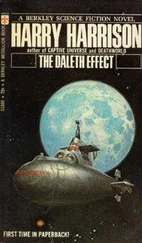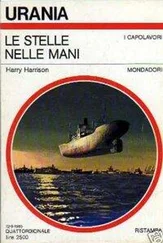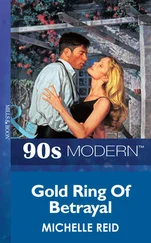Chelsea were the original fashionable club of the swinging 1960s. Raquel Welch once sat alongside Dickie Attenborough at the Bridge â there was no trendier place to be seen. Alan Hudson was the all-time crowd favourite, the trend-setter. Alan says Gullit has brought the buzz back to the famous borough of Kensington and Chelsea. âThis is the nearest weâve ever got to the atmosphere of the late 1960s and early 1970s. You can still sense it when there isnât even a game on. The club has been very dour for a long time, but Stamford Bridge now is alight.â
Less than two miles from Heathrow, the worldâs busiest airport, nestles the serene setting of Chelseaâs Harlington training headquarters. In the past, only a handful of journalists would assemble for pre-match briefings. Now the place is constantly under siege. Schoolchildren, families, fans and just the curious swell the ranks of onlookers to catch a glimpse of Gullit and the foreign stars. Youngsters just want to touch Gullit. So many turn up that crash barriers manned by overworked guards who also patrol the pitch are now a familiar sight.
Early in the 1996/97 season Scott Minto said: âThere are so many people who turn up at our training ground that I have had to tell the stewards guarding the entrance that Iâm a player and had to ask them to let me drive in for training. It is amazing really to think that the club has attracted players like Vialli, Zola and Gullit. I wouldnât have thought I would be playing with players like them when I joined from Charlton two years ago.â
One of Englandâs finest-ever imported players, Ossie Ardiles, is now enjoying a managerial renaissance in Japan. He arrived from South America with Ricardo Villa to experience the original culture shock. Back at his Hoddeston home on a break from his managerial successes in Japan, he told me: âI think coming to London is a big advantage for Gullit and his Italian signings. It is a big, big difference living in the capital than living, say, in the north of England. There is a big Argentinian community in London that helped me to settle, and there is similarly a large Italian community in the capital. The cosmopolitan Chelsea area, in particular, is definitely conducive to keeping star foreign players happy.â
Also in the clubâs favour is that Gullit can contend with settling-in difficulties. Having made big international moves he can empathize with his foreign stars and help them to adjust. An added complication, however, is that Chelseaâs culture shock has been two-way. While the Italians have had to adjust, so too have the British players. The bangers and mash brigade, led by that typically chirpy cockney Dennis Wise, have had to alter their eating habits to follow the Continental approach extended from the Hoddle regime. Routine food allergy tests are conducted to examine whether anything has been absorbed into the playersâ bodies that might affect their performance. Erland Johnson was told to steer clear of lager â a big blow for the Norwegian! Ruud has had to cut down on bread, coffee and chocolate, and Jakob Kjeldbjerg was warned off lettuce. Then there is the Frenchman Frank Lebeouf. The new delicacy he brought to the training ground canteen was cornflakes in his cup of tea! Sometimes he eats his breakfast cornflakes with apple juice out of the bowl.
Like others, Minto pinpoints the beginning of Chelseaâs transformation to the date Hoddle signed Gullit. âThings have changed much more since Ruud has taken over. Training has been a little more relaxed â apart from the five-a-sides. We have a fiver a man on those now, so the tackles really fly. But more seriously, this club is going to get bigger still under Ruud. He is such a charismatic player and manager that he will attract the top players from around Europe. You look at his career and he has done everything. If you watch the way he trains and plays, he is a good example. You canât help but learn from him.â
Andy Myers agrees: âOff the field the club has definitely progressed and become more professional. We go for tests to see if we are allergic to any foods. Iâm taking more care of my diet than I was a couple of years ago and I feel fitter thanks to the work Ade Mafe has put in. Weâre becoming 24-hour-a-day professionals in the same way as the Italians.â
Gullit says he found it difficult, at first, to make the transition from player to manager. âIâve had to distance myself because I must make tough decisions. I used to enjoy being part of the locker room. But I knew Iâd have to separate myself from that when I took the job.â Gullitâs methods differ from Hoddleâs, but he refuses to make any comparison. âBefore I took charge I had to sit quietly in the dressing room and suggest changes discreetly. I never knew whether they would be carried out. Now I am right there in the middle, giving talks, holding meetings and showing the players what they are doing right and wrong. Itâs so nice to be able to express my feelings and ideas this way. And you can see from the playersâ faces that they are enjoying what they are doing. They know there is more to the game than just kicking the ball into the box and hoping somebody might score. They have improved as players and they can still do better. My job is not to get a better team in order to chase Manchester United. It is just to get a better team.â
Gullit has quickly sensed the change in attitude towards him since succeeding Hoddle. âThe players treat me differently. They know that the decisions come from me and from Graham Rix. When we are on the training ground Iâm just a player and Graham is in charge. But if someone needs to be dealt with in some way Iâll take him to one side and have a quiet word. Iâm not going to shout or scream at anyone. Some people need a hug; others respond to different methods. The most important thing is that they take pleasure from what they are doing. Football is a game. It is meant to be fun.
âI like to watch what the players do and hear what they think after a game. Theyâll only enjoy themselves if theyâre winning and keeping possession. Most of the time we do that. The foundation is being laid. Success will definitely follow but it will take some time yet. For me, winning something is the dessert. The creation is the main course.â
One of Chelseaâs legends has no doubts about the Gullit era that has brought sweeping changes to the Bridge. Peter Osgood, a regular still at the club in his pre-match hospitality duties, marvels at Gullitâs regime. âI think Ruudâs a very professional man. He is a great player and will hopefully become a great manager. He has installed certain disciplines that are necessary. We were always collar and tie, whereas lots of people now wear track suits, but Iâm against that. You should go to a match feeling good and looking good. We always used to meet up and go out together, do things together and we had a great dressing room atmosphere. Ruud seems to have created the same team spirit. All the lads are terrific to talk to. Weâve just got to get the right balance and we will be an even more exciting side.â
Gullit has quickly transformed Chelsea into one of the capitalâs great entertainers. âWe have bought the kind of players people like to watch,â said Gullit. âWherever we go, the grounds are full because fans know they are liable to see a spectacular show â even when itâs freezing cold.
âWhen you look at the new stands being built here and the waiting lists for executive boxes, you can see Chelsea is growing very fast. The speed with which we are able to grow depends, of course, on our progress on the pitch. But our policy in the transfer market has been positive. Everyone made a big song and dance about the sums we spent on Roberto Di Matteo, Frank Leboeuf and Gianfranco Zola. But we have recouped a fair amount of that, and the clubâs business strategy has been excellent. Sure, weâve had players who have had difficulties coping with the new regime, and others who could not accept it. But we are quite happy those players are now doing quite well at other clubs because it shows our overall quality.â
Читать дальше
